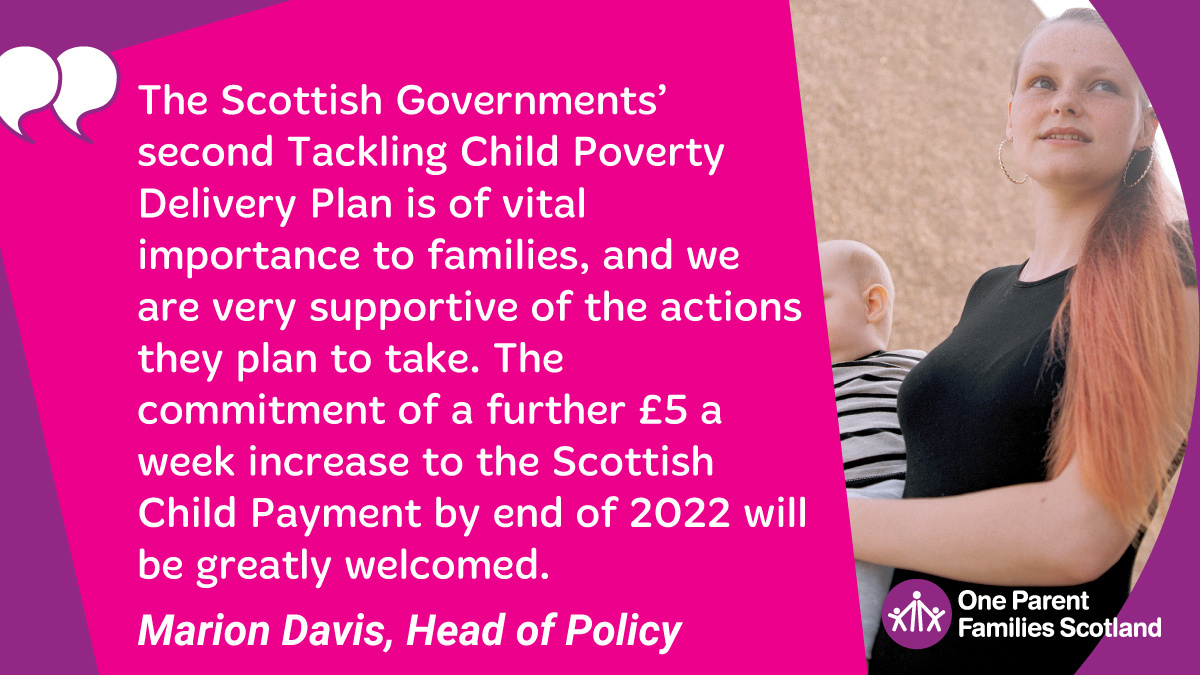OPFS response to Scottish Government’s new child poverty delivery plan

24/03/2022
News
Our response
Responding to the publication today of the Scottish Government’s new child poverty delivery plan, Marion Davis, Head of Policy at One Parent Families Scotland said:
“OPFS fully support the national mission to eradicate child poverty in Scotland as four in ten children in poverty in Scotland live in a single parent family. Rocketing energy bills, the increase in National Insurance, rising inflation and cut to benefits by the UK government have created a “perfect storm” for poverty, debt and despair for many low income families.
The Scottish Governments’ second Tackling Child Poverty Delivery Plan is of vital importance to those families, and we are very supportive of the actions the Scottish Government plan to take. The commitment of a further £5 a week increase to the Scottish Child Payment by end of 2022 will be greatly welcomed by the many parents struggling to put food on the table. However we know further increases will be necessary to help meet the statutory child poverty targets in 2024 and 2030.
We are particularly delighted about the recognition by the Cabinet Secretary of the devastating impact of the UK Benefit Cap and her commitment to work with local authorities to mitigate it. This is an inexplicable policy which mainly affects single parent families with very young children. It makes poor families who have no choice poorer. It has pushed families into ever deeper poverty, to foodbanks and often homelessness, with devastating impacts on family well-being and health. This new commitment will hopefully change this.”